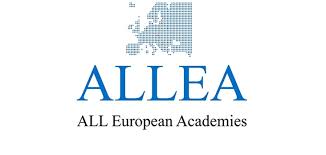Academic freedom and institutional autonomy
Joint Statement by ALLEA, EUA and Science Europe
Modern society thrives on the advancement of knowledge, scientific discoveries and technological development. Research enables such progress: from life-saving medicines to a more profound understanding of human behaviour and interaction, fundamental and applied research shapes and benefits societies around the world.
However, research can only contribute to a prosperous and sustainable future if it is conducted according to certain fundamental principles. Scholars need freedom of thought and inquiry to advance knowledge, as well as the freedom to communicate the results of their work and educate the next generation of critical thinkers. These principles converge in a central tenet – academic freedom – which must apply to the whole community engaged in research, learning and teaching. Underpinning this is institutional autonomy, which shields higher education and research institutions from political and economic interference and ensures the self-governance of the scientific community.
All countries in Europe – in the form of national legislation, international treaties or the EU Charter of Fundamental Rights – and many around the world have legal provisions guaranteeing academic freedom and institutional autonomy. While legal instruments differ in scope and content, they reflect a shared commitment to protecting these principles. Despite this commitment, academic freedom and institutional autonomy are no longer self-evident in Europe and around the world, with grave consequences for scholars, science and society.
All European Academies (ALLEA), the European University Association (EUA) and Science Europe, representing a vast section of Europe’s research and higher education system, therefore reiterate that academic freedom and institutional autonomy are of fundamental importance and value to society, and call on:
- governments and public authorities to protect academic freedom and safeguard the institutional autonomy of higher education and research institutions, by providing them with clear and consistent regulatory frameworks, refraining from interference in their internal affairs and engaging in a continuous trust-based dialogue with the sector;
- governments and public authorities to guarantee scholars and students the rights that constitute academic freedom, including the rights to freedom of expression, opinion, thought, information and assembly as well as the rights to education and teaching;
- governments and public authorities to guarantee the autonomy of funding decisions by research councils and funding bodies and the diversity of the research that is funded; while funding can be prioritised, no discipline can be excluded as a whole for political reasons;
- universities, funding agencies, academies and other research organisations to ensure that all researchers, teachers and students are guaranteed academic freedom, by fostering a culture in which free expression and the open exchange of opinion are valued and by shielding the research and teaching community from sanctions for exercising academic freedom.
The signatory organisations recognise that academic freedom and institutional autonomy do not exist for their own sake. Rather, their role is to empower higher education and research institutions to bear their societal responsibilities. Academic freedom must be framed by rigorous scientific and professional standards, respect for the rights of others, ethical conduct and the awareness of the impact of research on humans and their environment. Autonomous higher education and research institutions need to be accountable – to their own communities, to public bodies and to society. Governments play a key role in fostering this. We believe that academic freedom and institutional autonomy, coupled with this sense of purpose and responsibility, enable higher education and research institutions and the societies they serve to thrive.

